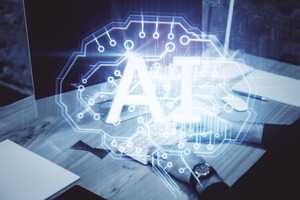
If you’re applying for jobs in New York City, you need to understand how AI affects your rights. Automated hiring tools can introduce bias, limit transparency, and create challenges if you suspect discrimination. Knowing the laws that protect you is essential.
How AI Is Used in Hiring and Employment
Employers use AI in several ways throughout the hiring process. Some of the most common applications include:
- Résumés and application screening: AI scans job applications and ranks candidates based on keywords, experience, and other factors
- Video interview analysis: Some companies use AI to evaluate facial expressions, tone of voice, and word choices during video interviews
- Predictive hiring tools: AI can predict which candidates might succeed based on past hiring data
- Employee monitoring: Some employers use AI to track productivity, analyze work habits, and assess emotional states
These tools help companies process large volumes of applications quickly. They also reduce the chance of human bias in some cases. However, they can create problems when they reinforce existing biases or lack transparency.
Benefits of AI in Hiring
AI offers advantages to both employers and job seekers:
- Faster processing: AI speeds up hiring by quickly sorting applications and identifying strong candidates
- Objective decision-making: AI can remove human bias if designed properly
- Efficiency in large companies: Employers can handle thousands of applications without delays
Despite these benefits, applicants must be cautious. AI is imperfect, and its design or implementation errors can unfairly impact job seekers.
Potential Risks and Legal Concerns
If you’re applying for a job in NYC, be aware of the risks AI poses when hiring. Employers must follow anti-discrimination laws, but AI can still create unfair barriers. Here are some issues to watch for:
Bias and Discrimination
AI is only as fair as the data it learns from. AI can reinforce those biases if an employer’s past hiring practices were biased. For example, if a company historically hired more men than women for leadership roles, its AI system might favor male applicants.
To address this, New York City has passed laws regulating AI in hiring. The NYC Automated Employment Decision Tools (AEDT) law requires companies using AI-driven hiring tools to conduct bias audits. Employers must also inform candidates when AI is used to assess them.
Lack of Transparency
AI hiring tools often work in ways that are unclear to job seekers. If a company rejects your application, you might not know why. You could have been filtered out due to an unseen algorithmic decision.
Under the AEDT law, NYC employers must disclose when they use AI to evaluate applicants. If you suspect unfair treatment, you can ask for more information.
Data Privacy Issues
AI hiring tools collect and analyze large amounts of data, sometimes including facial recognition or voice analysis. Employers must handle this information responsibly. If an employer misuses or fails to protect your data, it could violate privacy laws.
Protecting Your Rights as a Job Seeker
AI in hiring is here to stay, but you can take steps to protect yourself.
- Ask questions: If AI is involved in your hiring process, ask how it works and what data it uses
- Review employer disclosures: NYC law requires some transparency about AI hiring tools. Pay attention to any notices you receive
- Know your rights: Employers must follow anti-discrimination laws, even when using AI. If you believe you were unfairly rejected, you may have legal options
Get Legal Help If You Suspect Unfair Hiring Practices
AI is reshaping the job market, but employers still have legal responsibilities. Understanding AI in NYC hiring practices can help you protect yourself.
If you suspect an employer used AI unfairly in hiring, you may have grounds for a complaint. Borrelli & Associates P.L.L.C. can help you understand your rights and determine if legal action is necessary.



















